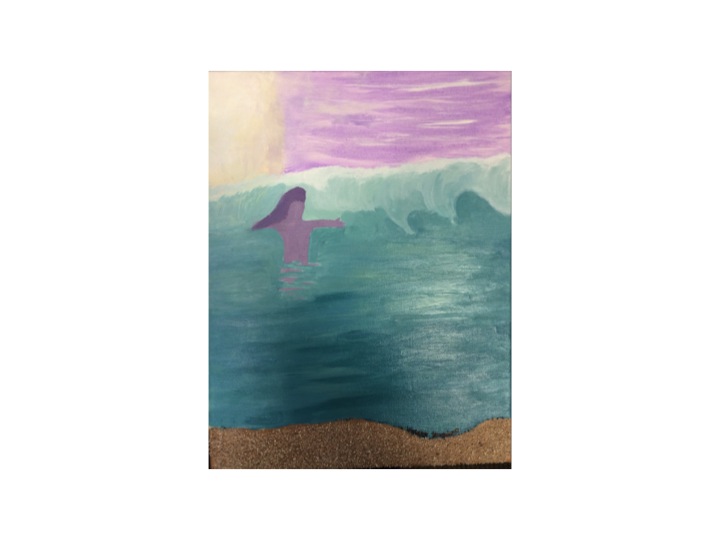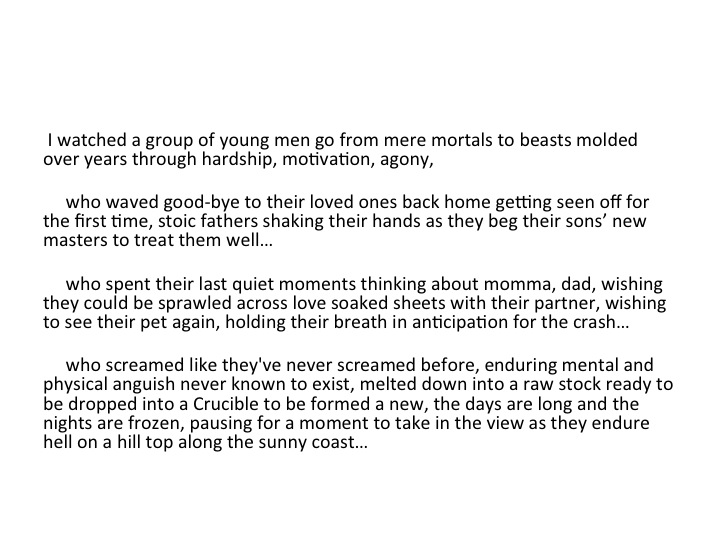Erin M. Breaux
[email protected]
Let's face it--the students taking my gen-ed Brit Lit survey are there because it is required, and they are not planning to be English majors. I began to wonder whether they *had* to have the traditional literature analysis essay. Could I let them work on the same skills, and perhaps spur them to appreciate the fun of literature, by utilizing creative projects? In fact, through the assignments I share, students can practice and show close reading, attention to detail, and understanding of literary elements and forms. The assignments are win-win because they are also FUN for me to read. I sometimes have to make myself grade composition essays first because I want to skip them and read the fun stuff--i.e. these literature projects! :)
Either of these projects could be adapted into a low-stakes or in-class assignment if you prefer. I think having the whole class or small groups do a collaborative imitation in class could be fun though I haven't tried that.
The first assignment that I share below can be adapted for almost any literature course, and you could give more specific prompts or ideas connected to course texts if you desired. As you see, students also reflect and explain a bit so it helps me gauge their effort. In the future, I would like to build in a day on which students share an excerpt with the class.
Choose a literary work by one of the authors on our reading schedule (or, if you would like to work with an author in the anthology who we did not read, you just need to get it approved by me), and then do one of the following options. Some students have successfully melded two of the options:
1. rewrite a scene/excerpt in the literary work from a different character/speaker perspective or point of view
2. rewrite a scene/excerpt in a different genre or different author’s style so that the product becomes an interesting juxtaposition
3. write a different backstory, ending, or extension of story/text to explore how the work would change
4. rewrite a scene/excerpt with modern situation/setting in order to consider modern relevance of the older text
5. write a parody/satiric version of a literary text so that you gently or harshly make fun of the original text or ideas within
6. write a personal creative work inspired by a literary text in order to see how literature can prompt exploration of your life
All options should include you doing some imitation of the style of the original text/ author/ genre. By style, I mean literary devices, sound, syntax (types of sentences, order of words), and diction/language (formality, tone, words used, figurative language). Any genre elements are in play here, too, like drama being separated by character and including stage directions, and poetry including poetic lines (not prose) and, if applicable to original, rhyme (some half-rhyme is ok). You are not required to imitate meter unless you like the challenge!
After completing the creative version, I want you to reflect on what you did. Include an at least one-page paper about the reason for choosing original text, process of writing, any challenges, your attempts to overcome them, your goal(s), your reasons for certain choices, what was most interesting, and how well you think you accomplished your goals/vision. Consider this like an artist’s statement that may be posted next to artist’s painting in an art gallery—and mix that with an assignment reflection.
You will be graded on the following elements:
- Clear imitation/inspiration from genre, literary, stylistic elements of original
- Content/theme makes logical sense with knowledge of original
- Unique connections between original and adaptation
- Uses creativity and shows effort
- Process Paper included and meets requirements
I have allowed a few students to do multimedia versions. In Women’s Lit, I have received an original spoken word poem on religion and homosexuality and a video that included music, images, and student text on how women have been portrayed in modern music. In British and American survey courses, a few highlights have been “Prologue of a Millennial”—a satiric imitation of a pilgrim’s prologue in Canterbury Tales but the subject was a 21st century millennial, and a poem inspired by Gwendolyn Brooks' “We Real Cool” that explored the challenges of living as a young black man with characteristics that some black classmates considered too “white.” It was honest and touching. This is when you know that literature has impacted a student! This spring, a student wrote a poem “Mrs. Jekyll” in the style of Carol Ann Duffy, while making central an invisible character from Dr. Jekyll and Mr. Hyde. The juxtaposition was perfect.

I have also tried a group project which is a fun way to end the semester. I give the students a couple of days in class to work with their groups, and then they perform. The project requires that students think about what positions and personalities the authors would logically have, and it makes them reflect back on the works read and information learned. Most groups are quite creative and use contemporary references with humor.
In groups of 3-4, you are going to join 3-4 authors in actual conversation with each other. Each person will assume the role of a particular author and speak as him or her. You can have them discuss a cultural/social or literary issue whether historical or contemporary (today’s society)—one that they could legitimately discuss even though you’re crossing the time/space continuum. It would be pretty hard to have Bierce and Williams (Am Lit) or Wordsworth and Yeats (Brit Lit) discussing Britney Spears, for example, but having female authors discuss her as possible feminist pop culture icon and their characters could work. What the authors say should analyze the issue and show what their actual perspectives were or would likely be based on what you know and have read by them. You can use examples and quotes from their works or each other’s works. Be creative but also show me that you’ve thought about these author’s works, their ideas, and relevant issues--and you’ve considered connections and applications based on that information.
You’ll present your conversation to the class by reading your script, which should not have speech by author A then speech by author B, etc. It should be a back and forth, speak and respond, conversation. Of course, memorization or extemporaneous speech is not necessary, but feel free to improvise if it comes to you! You will turn your “script” into me after you present it. (P.S. No acting skills are necessary although you should not read your script in monotone! But bringing a prop that would represent your author or setting would be fun or if you’re good at impersonations, have at it!) Your conversation should be 8-10 minutes long with all authors speaking around the same amount.
I will grade each person based on his or her author persona and on the overall conversation. Here are the specific elements I’ll be looking at:
- Creativity & Effort
- Analytical Thinking and Connections
- Logical Content of Script
- Knowledge of Author and Works
- Flow of Script as a whole
Who knows what will happen when Allen Ginsberg, Anne Sexton, and Mark Twain are together in an insane asylum, for instance, and the audience doesn't even realize where they are until the very end? Or how would gothic and supernatural writers from the 18th and 19th centuries (Radcliffe, Rossetti, Gaskell, and Stevenson) judge Twilight and Harry Potter? Those are examples of conversation scenarios that students have done. We have ended the semester with laughter each time! Frankly, they know that if they get me to laugh, that is a good sign!
Have you tried creative projects in your literature classes? Please share and let us know how they worked!

 RSS Feed
RSS Feed